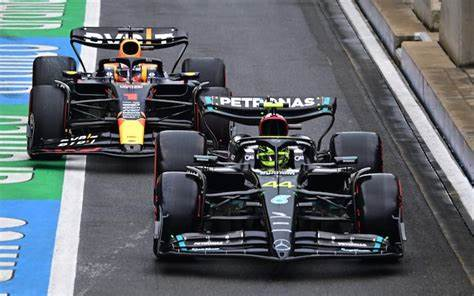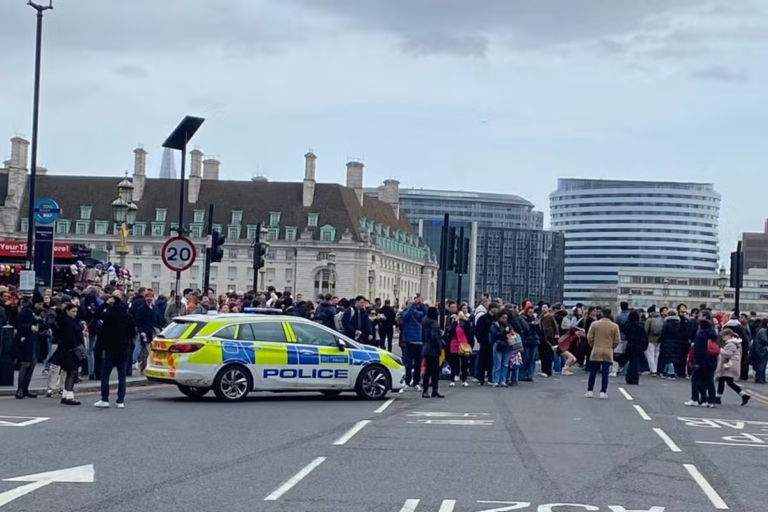The Grand Prix is one of the most thrilling events in the world of motorsports, where speed, skill, and strategy converge. Whether you’re a long-time fan or a newcomer to the sport, understanding the start times of these races is crucial. This article will answer the common questions people are asking about the Grand Prix start time, provide insights into how the start time is determined, and give you the tools to stay updated on race schedules. We’ll also explore the different time zones, how broadcasting rights affect start times, and much more.
What is a Grand Prix?
Before we dive into the details of start times, let’s briefly explain what a Grand Prix is. The term “Grand Prix” (French for “Grand Prize”) refers to the major international motorsport races that form the Formula 1 (F1) World Championship. Each Grand Prix is a high-speed, high-stakes event, where drivers compete on various tracks around the world, ranging from street circuits to purpose-built racetracks.
The Formula 1 Grand Prix is the pinnacle of motorsport, and each race is a key part of the championship standings. Grand Prix events typically consist of practice sessions, qualifying, and the final race. The start time of the race is often the most anticipated part of the weekend, as it marks the climax of the competition and the moment when the drivers go full throttle.
How Are Grand Prix Start Times Decided?
The start time of a Grand Prix is influenced by multiple factors, ranging from the location of the race to the preferences of broadcasters and the teams involved. Here are some of the main aspects that determine when the race will start:
Location and Time Zone: The location of each Grand Prix plays a major role in determining the start time. Formula 1 races are held on different continents, and each has its own local time zone. For example, a Grand Prix in Europe may start in the afternoon local time, while a race in Asia or Australia could be held in the early morning hours in European time.
Broadcasting Rights: The global nature of Formula 1 means that broadcasters from all over the world have the rights to air the races. This can impact the start time to accommodate different audiences. F1 and its partners aim to schedule races at times that attract the highest number of viewers, which is why European races often take place in the afternoon, while Asian and Australian races might start at night or early morning to cater to the European audience.
Track and Weather Conditions: Weather plays a significant role in race start times. For example, rain delays can push the race start time back, as can other unforeseen conditions like track safety issues or technical malfunctions. Races may also be scheduled earlier or later depending on the forecast to avoid extreme weather conditions like the midday heat in desert regions or rain during the evening.
TV and Commercial Considerations: Formula 1 operates as a commercial entity, and TV broadcast rights are one of its most significant revenue sources. Start times are often set to maximize viewership across the world, ensuring that the race reaches as many people as possible. This means that some races may be scheduled to suit the prime time for different global markets, particularly for the European audience.
Common Grand Prix Start Times Around the World
Understanding the time differences across the globe is key to following the Formula 1 season. Here is a look at the typical start times for major Grand Prix events, with their times adjusted to Central European Time (CET) for consistency.
European Grand Prix Start Times: The European Grand Prix is generally one of the most consistent in terms of start time. Most races in Europe, such as those in Spain, France, and Monaco, typically begin in the afternoon. Expect the race to start at 14:00 CET.
Asian Grand Prix Start Times: Races in Asia, such as those in Singapore and Japan, usually begin later in the day. Due to the time zone differences, these races often start at 14:00 to 16:00 local time, but for European fans, this translates to later times in the evening (around 06:00 to 08:00 CET).
Australian Grand Prix Start Times: The Australian Grand Prix, typically the season opener, is notorious for its early start times due to the time zone differences between Melbourne and Europe. The race often begins at 16:00 local time, which translates to an early 07:00 CET start.
American Grand Prix Start Times: The United States has a unique scheduling for its races. The US Grand Prix in Austin, Texas, usually starts at 14:00 local time, which is around 21:00 CET. Races in Mexico and Brazil also fall within a similar window of local time, making them more accessible to European viewers in the evening.
Middle Eastern Grand Prix Start Times: The Middle East is home to several key Formula 1 races, including those in Abu Dhabi and Bahrain. These races are often held in the evening, typically starting at 18:00 local time, to avoid the extreme desert heat. These races are broadcast in the evening for European audiences, usually starting at 15:00 CET.
How Do I Convert Grand Prix Start Times to My Time Zone?
Converting Grand Prix start times from one time zone to another can be tricky, especially when the race is held in a different part of the world. Here are a few tools and methods that can help you stay on top of race start times:
Formula 1 Official Website and App: The easiest way to stay updated on race start times is by using the official Formula 1 website or Formula 1 mobile app. These platforms provide live updates on race schedules, including countdowns to the start of each session.
Google: If you’re unsure of the exact start time for a Grand Prix in your local time zone, a quick Google search with the phrase “Grand Prix start time” will typically convert the time for you automatically.
Time Zone Conversion Websites: Several websites and apps are dedicated to converting time zones, such as Time Zone Converter or World Clock. Simply enter the race’s start time in the local time zone, and these tools will convert it to your local time.
FAQs
What time does the Grand Prix start?
The exact start time of a Formula 1 Grand Prix race depends on the location and the time zone of the circuit. Races in Europe typically start at 2:00 PM local time, while those in regions like the United States or Asia may vary. For example, the 2024 United States Grand Prix at the Circuit of the Americas will begin at 2:30 PM local time (CST).
Why are some races held at different times?
The start times of races are set to accommodate global TV broadcasting schedules and to make the event accessible for international viewers. Races in regions like Asia or the Middle East are often held later in the day to cater to European audiences.
How can I find the start time for a specific Grand Prix?
You can find the start time for each race on the official Formula 1 website, as well as on various sports streaming platforms like YouTube. Major sports networks and channels, like ESPN, also publish the schedule for each Grand Prix.
Are the start times the same every year?
Generally, the start times of the Grand Prix races remain consistent from year to year. However, there can be some adjustments depending on local circumstances, weather, or broadcasting needs.
In Summary
Understanding the Grand Prix start times is essential for getting the most out of your Formula 1 experience. Whether you’re a long-time fan or just starting to follow the sport, knowing when the race begins helps ensure you don’t miss any of the action. Start times are influenced by a variety of factors including location, broadcasting rights, and even weather conditions. By using tools like the official Formula 1 app, Google, or time zone converters, you can easily stay on top of the race schedule and make sure you’re ready for the next thrilling race.
To read more, Click Here .







